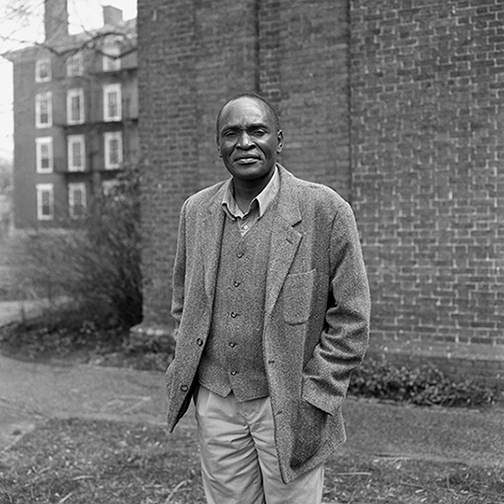
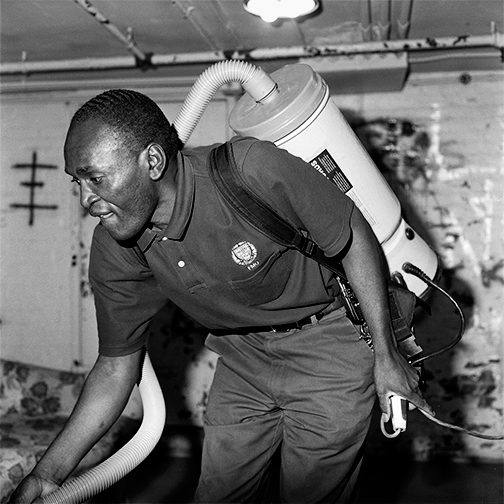
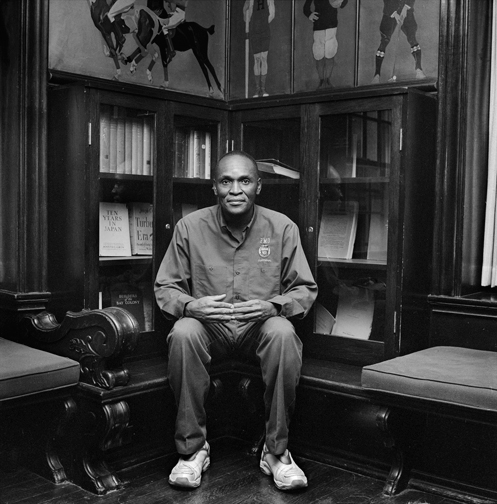
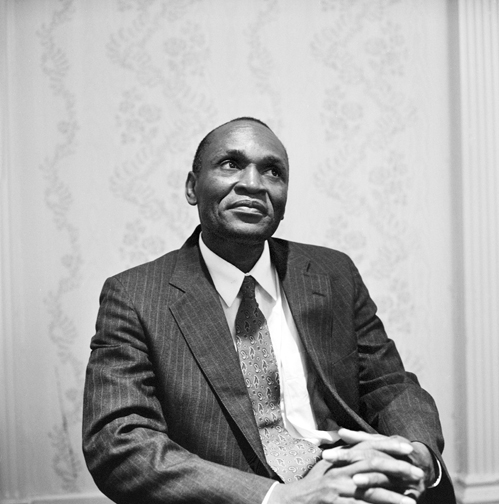

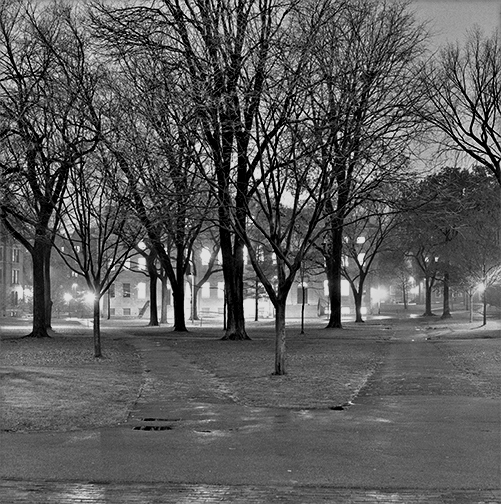

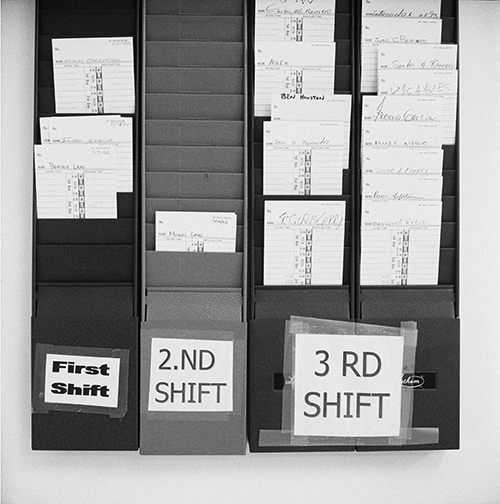
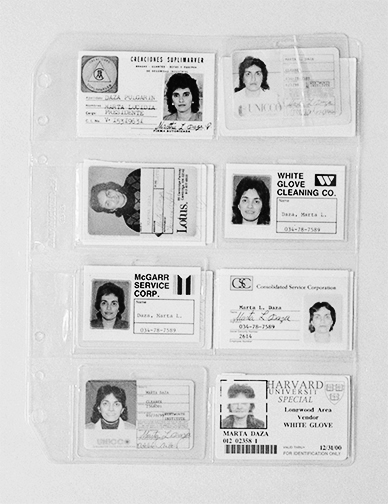
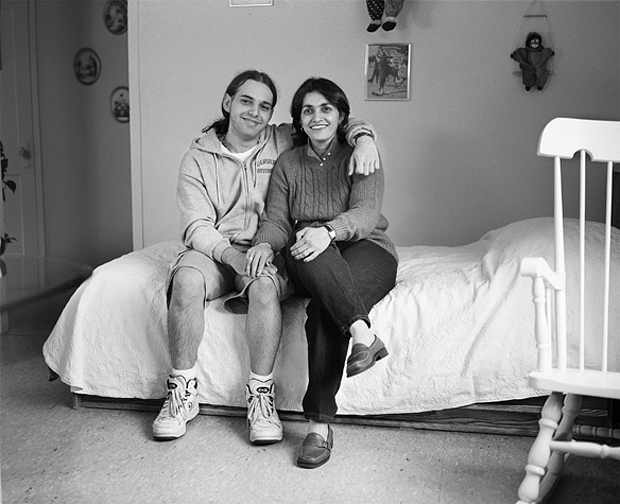


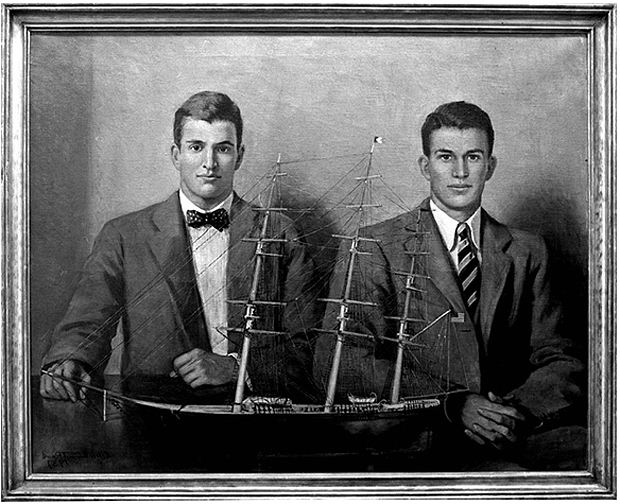
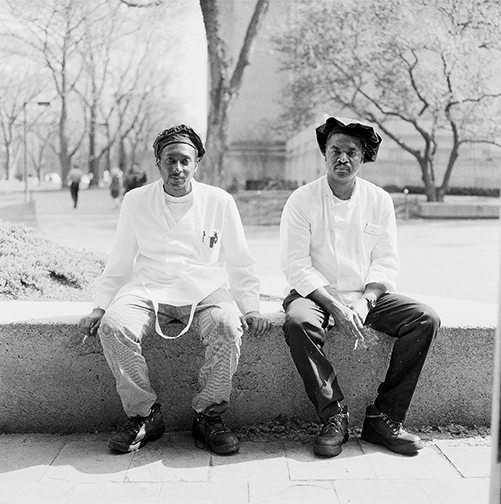
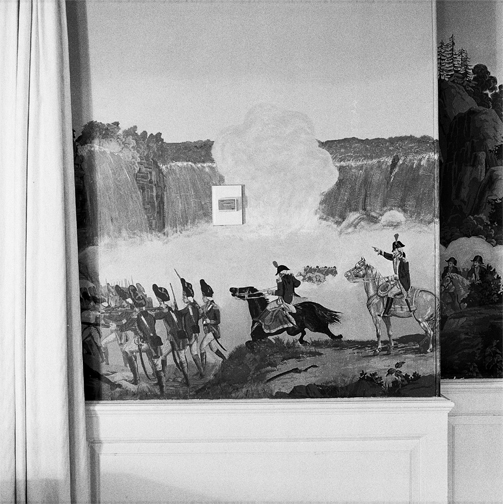
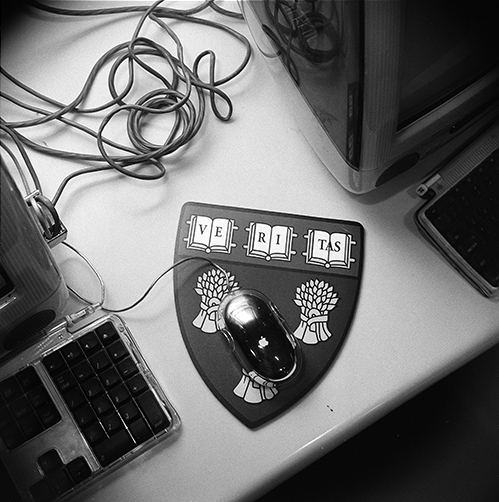


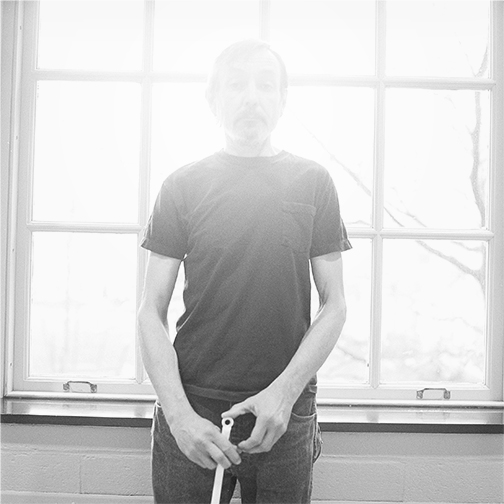
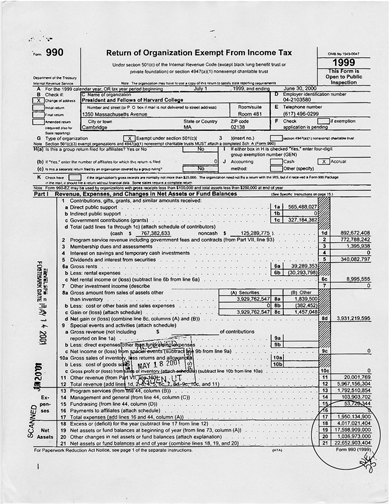
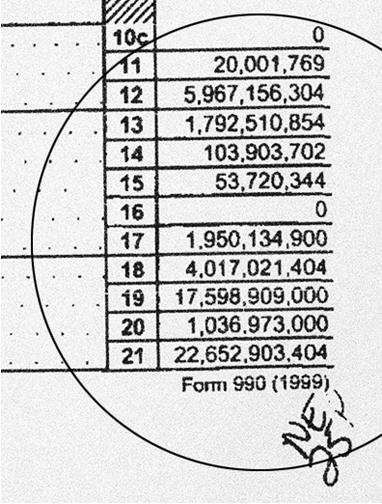
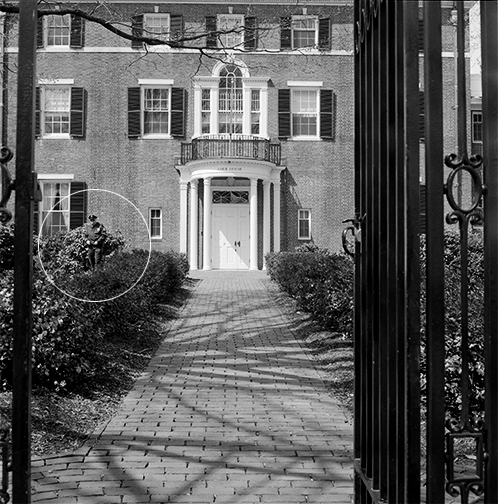

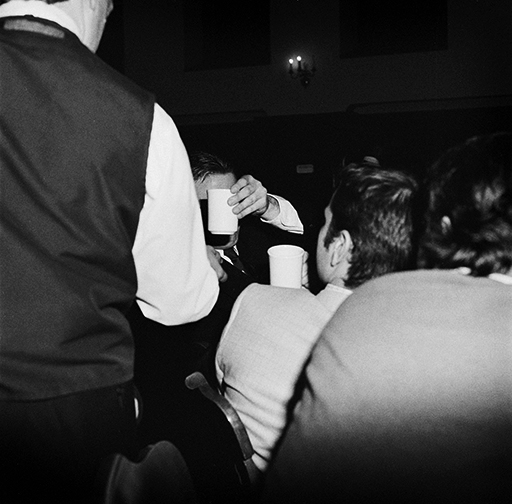
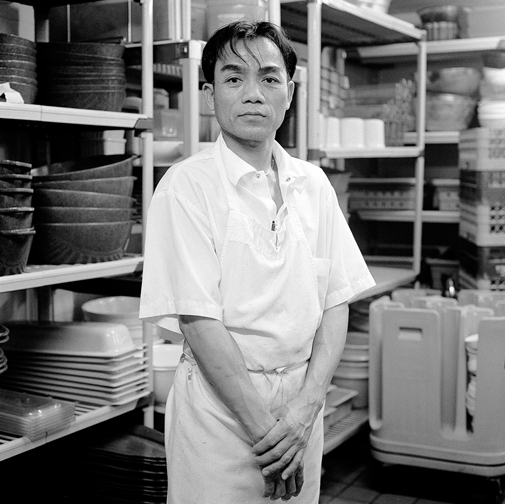

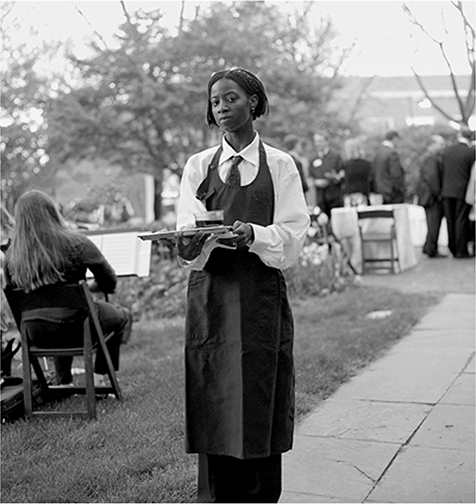

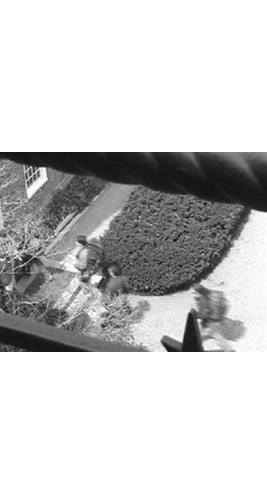


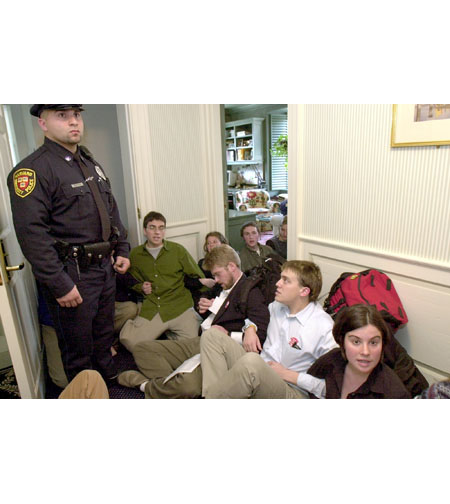
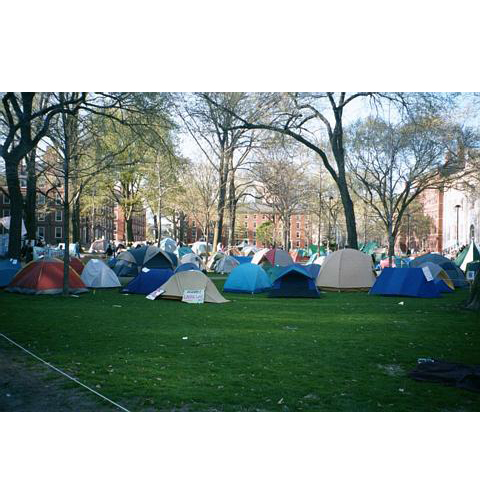
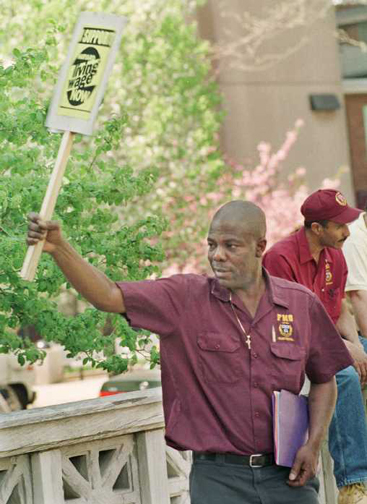
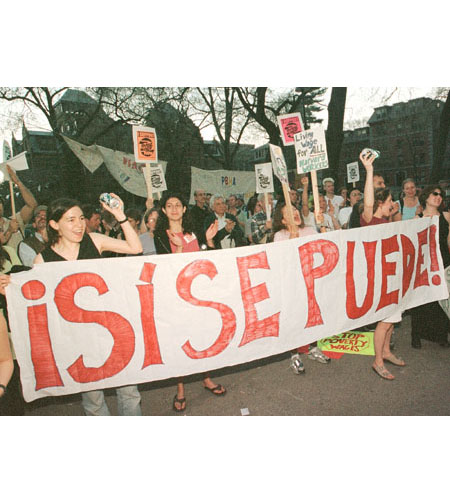
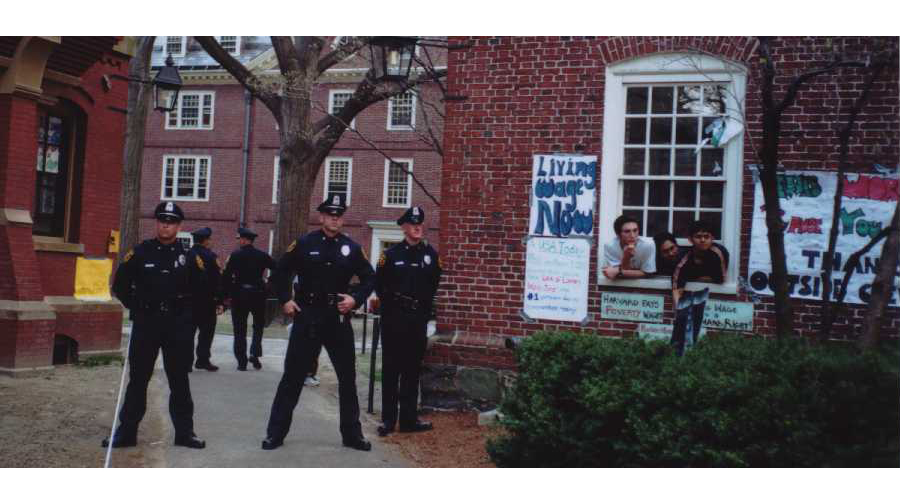
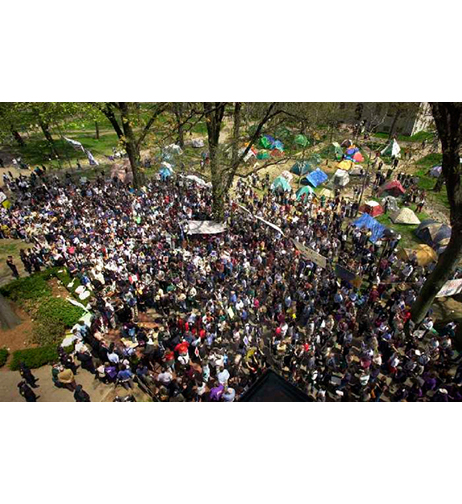
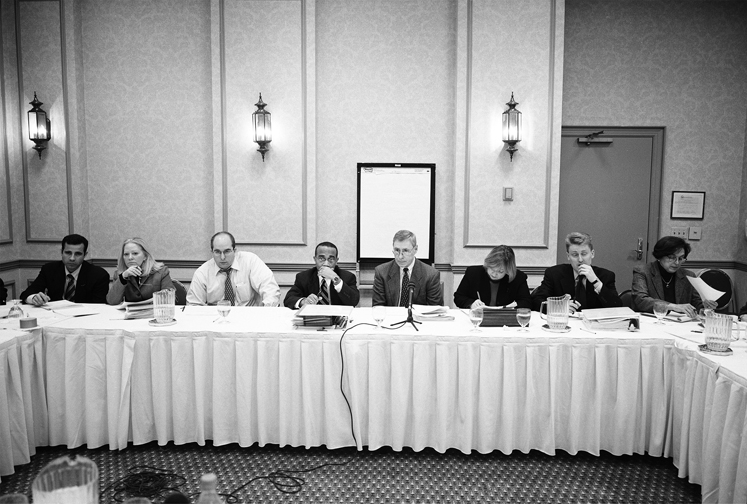
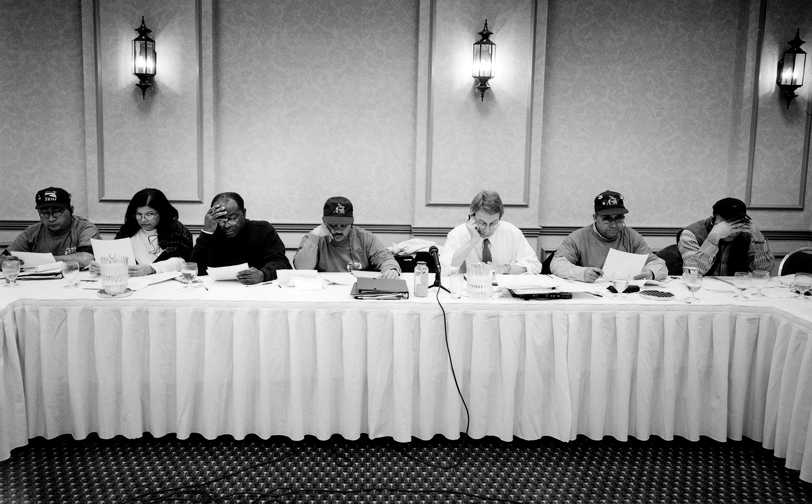











































"I was twenty when I finished college. Yes, I finished college. My supervisor, he was from Haiti and he was high-class there too. So when I started, when I picked up a mop, he told me, 'Don’t think about it Wilson, just do it.' But the managers, they are testing me—they leave pennies on the floor, in the corners, to see if I've cleaned well."
- Wilson Saint Claire, Custodian
Wealth and Poverty at Harvard
Between 1994 and 2001, the endowment of Harvard University tripled, making the school the second wealthiest non-profit in the world. In the same years, Harvard heavily outsourced service jobs to lower-paying companies, resulting in wage cuts of up to 30% for custodians, food-workers and security guards graduated from Harvard in 1999 and spent the next three years heavily involved with the Harvard Living Wage Campaign and working on this project.
"Being the cleaning lady you hear things, see things, you're the quiet dirt cleaner. Financially I'm okay now. I was able to move out of the projects, but, after paying taxes, day care, car insurance, that’s when you start going to food pantries and soup kitchens and you start trash-picking for clothes and toys and furniture. I find good food in the garbage here, too. It's very tiring, and it's hard work, especially if one of the kids pukes. The kids drink, and they puke, and it dries on the walls and that’s gross. But you clean it up, hold your nose and you think to yourself, 'I got three kids, I love my kids, I love my kids.'"
- Anonymous Custodian
"I took pills to stay awake. I needed pills when I came home, to fall asleep. Because I work here seven AM to four PM. $11 an hour. And then I drive a cab 'til midnight. I have four children, two boys, two girls, and they do not like it. They see me every weekend, but Monday through Friday I only speak to them on the telephone."
- Anonymous Custodian
"There’s this very tall, very pretty blond girl where I work. I see her all the time, but she never sees me. She sees through me, if you know what I mean. I am invisible."
- Anonymous
Sit-In
After three years of urging Harvard to reverse wage cuts, fifty of us staged a sit-in in Massachusetts Hall, the Office of the President. We refused to leave until the school reversed cuts in wages and benefits, stopped outsourcing, and agreed to a living wage policy. Neil Rudenstine, the school's President, said he would resign before he negotiated, but after three weeks, Harvard agreed to re-negotiate all contracts with service workers. In exchange, we agreed to leave the building.
From the Foreword by Studs Terkel
It was a motley group of these kids—who in their sit-in at the Harvard administration building set off a bonfire for equity and justice. It was the testimonies—distributed as photocopies, read at rallies, and now printed in this book—that had inspired them...
For the students who sat-in, the odds were overwhelmingly against them. Yet something remarkable and wholly unexpected happened. Other students, who might otherwise have been interested only in making it postgraduately big, gathered around. Faculty members, who might not have taught Ethics 101 but did practice it, joined the young sitters-in in protest.
The administration, which until this moment said "Never"—the president had vowed to resign rather than negotiate—finally bowed, and considerable concessions were won.
The Outcome
After a year of negotiating with the administration, Harvard agreed to pay all its service workers, including janitors, security guards and dining workers, a living wage of $10.25 per hour in 2002. This represented a significant, immediate raise for over 1,000 service workers, some of whom had been earning as little as $8 per hour. Harvard also agreed to immediately place a moratorium on outsourcing jobs to lower-paying companies.